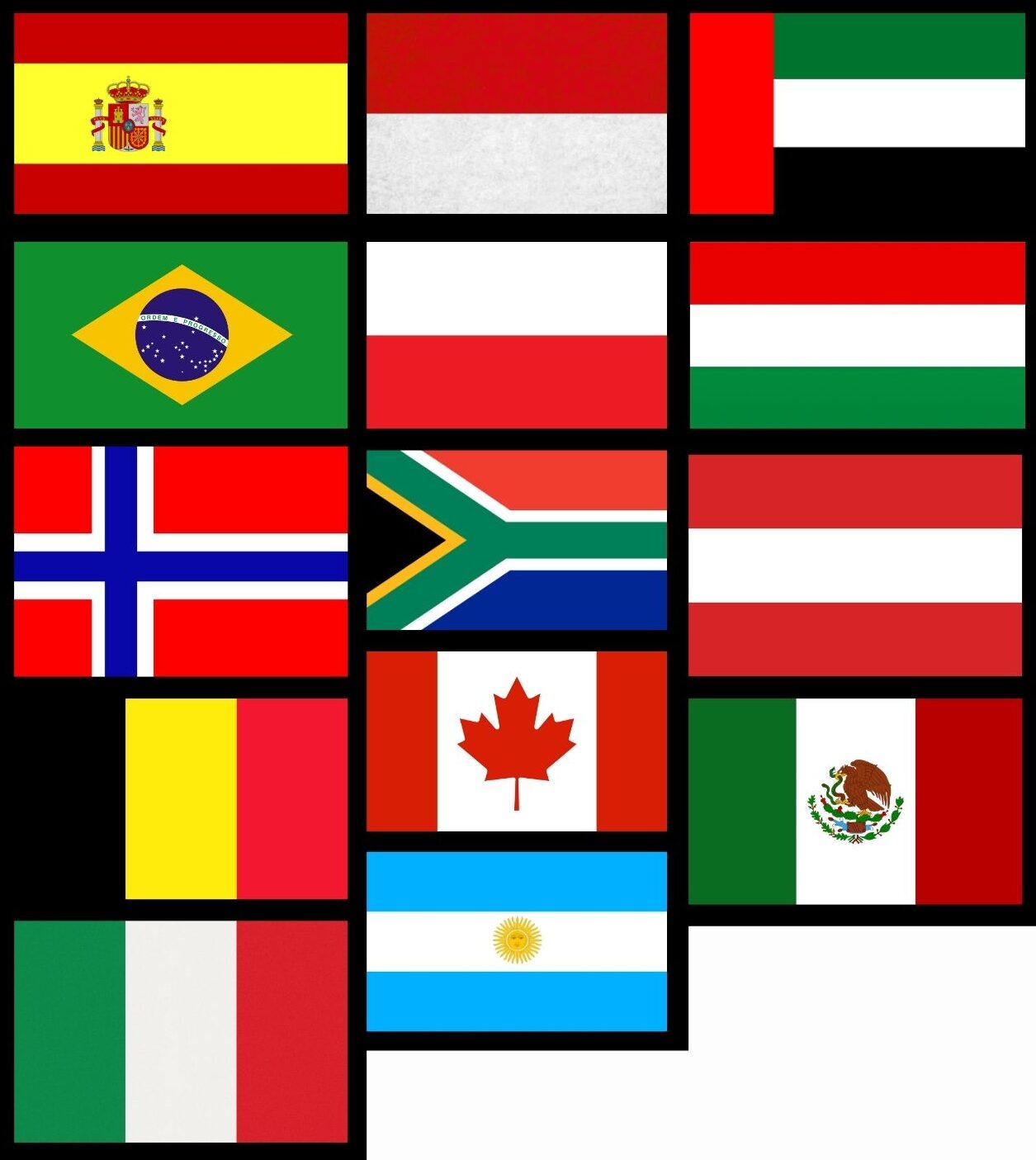Sworn translation is crucial for individuals looking to take documentation abroad… So, what is it exactly?
A Sworn translation is a document that has been translated by an officially recognised (Sworn) translator; these translations are thus valid within a legal context. The stamp & seal of a sworn translator, therefore, is a guarantee of the accuracy & legality of the translation, and their acceptance of responsibility for the document.
- Who are Sworn Translators?
- When Do I Need a Sworn Translation?
- Which Countries Require Them?
- What are the Differences Between Sworn, Certified, and Notarised Translations?
- What is an Apostille (and the Hague Convention)?
- Closing Recommendations
-
Who are Sworn Translators?
Sworn translators are much like any other translator, but their expertise has been formally recognised by their government. This has been done by the swearing of an oath before a court of law. This means that they can translate documents on behalf of the government, with their seal being a guarantee of the completeness & accuracy of a document.
Being sworn does not necessarily indicate that this translator is the best of the best. It is simply a qualification that they hold, and with it they can perform a needed function. There may be fantastic translators that are neither certified nor sworn.
-
When do I need a Sworn Translation?
We would recommend that you find a sworn translator if you are localising documents for a country that mandates sworn translations. A list can be found in the next section.
The following are some examples of what you may need translating:
As an individual:
- Adoption processes
- Certification attesting the absence of criminal records
- Civil registration certification (birth, marriage, and death certificates)
- Diplomas and transcripts
- Medical certification and reports
- Notarised documentation
- Residence permits
As a corporation:
- Certification from Mercantile Registry and Treasury Departments
- Contracts and reports
- Court rulings
- Deeds of incorporation and articles of association
- Letters rogatory
- Powers of attorney
- Yearly reports and financial statements
However, we would not recommend that you immediately source a sworn translator if it is not legally necessary. After all, you would be paying for the privilege of certification, and there is no point paying for that privilege, if it is not needed. One may be able to find a non-sworn, equally specialist, legal translator for much less. Shop around for some options.
-
Which Countries Require Them?
Here is a quick list of those countries that require sworn translations:
 Spain
Spain- Brazil
- Norway
- Belgium
- Austria
- Indonesia
- Poland
- South Africa
- Canada
- Mexico
- Italy
- United Arab Emirates
- Hungary, and more
As for those countries that are more relaxed about sworn translations, these tend to be the English-speaking ones. Countries like the United Kingdom, the United States, and Australia do not have a formal process concerning sworn translation. In these countries, you do not need a sworn professional (taken an oath in court) to translate your documents; you can use any translation service.
-
What is the difference between a sworn, certified, or notarised translation?
There are various “official” translations terms, that can often get mixed up with one another. These include sworn translations, certified translations, and notarised translations. If one does not know the difference, it can end up complicating the situation. So, what are the differences:
Sworn (or Certified) Translations
Sworn translators and certified translators are exactly the same, in practice.
These are individuals who have sworn an oath in front of a court of law. This oath essentially covers all subsequent translations, declaring that they are reflective, accurate, and complete. Due to the oath taken in a court of law, they operate under penalty of perjury: a criminal offence. Such is the importance of their work. One tell-tale sign of a sworn translator is the seal at the bottom of documents to prove their validity.
Any document translated by a ‘sworn’ or ‘certified’ translator is thus legally permissible. Both have the legal authority.
Notarised Translations
We also have notarised translations. This is a translation service that can be provided by any individual, but then needs further official ratification by a public official.
The difference between this service and the above sworn service, is when legalisation happens. For notarised translations, the translation is legalised by a notary after-the-fact whereas sworn/certified translations are certified before-the-fact.
The aforementioned “public official” is called a Notary, from which we get the term ‘notarised’. The notary is, essentially, an impartial witness with legal authority. They exist to deter fraud and to ensure that documentation is properly performed. A notarised translation is “notarised” each time by this public official and the translator must presents themselves, signing an affidavit swearing that the translation is a true reflection of the original document.
So, a sworn/certified translation is something performed by a qualified individual who, upon swearing an oath, becomes “certified” or “sworn”; all subsequent translations are therefore legally permissible. A notarised translations are ratified each time, after-the-fact, by a public official called a “notary”.
-
What is an Apostille & the Hague Convention?
In your research on sworn or certified translations, you may have come across the term ‘Hague Apostille’. But what exactly is it?
Essentially, the convention is an international treaty agreeing on how to certify a translated document. It saves a person having to get a document certified in their home country, and then recertified in the country they are moving the document to. With the apostille, only one ratification is needed if both countries are part of the treaty: the country that you are in.
If you are British and are moving documentation to Spain, for example, then you would only need to get it ratified in Britain, as both the UK and Spain are signatories. There are 120 members of the convention; you can find a full list here.
Careful, though! The apostille does not guarantee the content of the translation, but only the signature & seal on the document. Also (!) don’t forget to include the apostille (only if applicable), before you send the document for translation. The apostille itself should be translated, and thus is part of the official document.
For more depth on this topic, from the HCCH themselves, click here.
-
Closing Recommendations
Different countries require different certification procedures, and different supplementary documents, too. If it is a legal requirement to get the documents certified, then one needs to find a relevant sworn translator.
Check before you buy!
Due to different requirements in different countries, we strongly recommend that you contact the relevant legal authorities in the relevant country before requesting a sworn translation. You could also consult your translation service provider for more locale-specific details.
Should you ever require our help or services, please contact us here.

